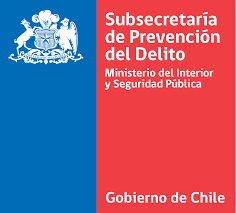With the slogan “Early and Preventive Action concerning Children and Adolescents”, the 2nd International Seminar was held of the “Lazos” System, a program sponsored by the Sub-secretariat for Crime Prevention in which three components, each with its own set of complexities, seek to stop youngsters from joining gangs and committing crimes, or at least reduce the likelihood of them doing so.
At this second version of the Seminar, international and national experts got together, as well as 300 professionals and therapists from all over the country. Together, they tackled the different aspects of this prevention and reinsertion program, unique of its kind in the world, whilst applying three pillars of support for families: Triple P, Families United and Multi-system Therapies, thus transforming it into a comprehensive system aimed at preventing youngsters entering a life of crime.
During its inauguration, the Sub-Secretariat for Crime Prevention, Katherine Martorell, pointed out the importance of reaching out to boys, girls and adolescents in Chile, because “youngsters are an absolute priority for our Government, and so we have created a comprehensive system that provides aid for children, youngsters and their families, but above all, the aim is to get to them before a crime is committed”, the authority explained.
At this encounter, held in the Cultural Center of the Uniformed Police of Chile, Alina Morawska from the University of Queensland (Australia) tackled the experience from the first component of Lazos: Triple P or the Positive Parenting Program, a model developed by their university aimed at encouraging positive upbringing. During her intervention, the expert stressed the fact that “upbringing is what has the greatest impact on the welfare of boys and girls and adolescents”.
The Sub-secretariat applies the Triple P program in some of Santiago’s municipalities by transferring knowledge to the social workers in these municipal networks so they can work alongside the families. This is because upbringing creates a challenge which means having the tools on hand that act as an orientation for families during the most normal habits of the day, such as getting children up in the morning for school, stopping fights breaking out between siblings or doing homework. These are things that, if not addressed right away, could lead to the parents becoming violent with their sons and daughters. For that reason, reaching out, contributes toward the prevention of child abuse.
MundoChile was given the important mission of rendering simultaneous interpretation services in English and Spanish during this key encounter for welfare among Chileans.
